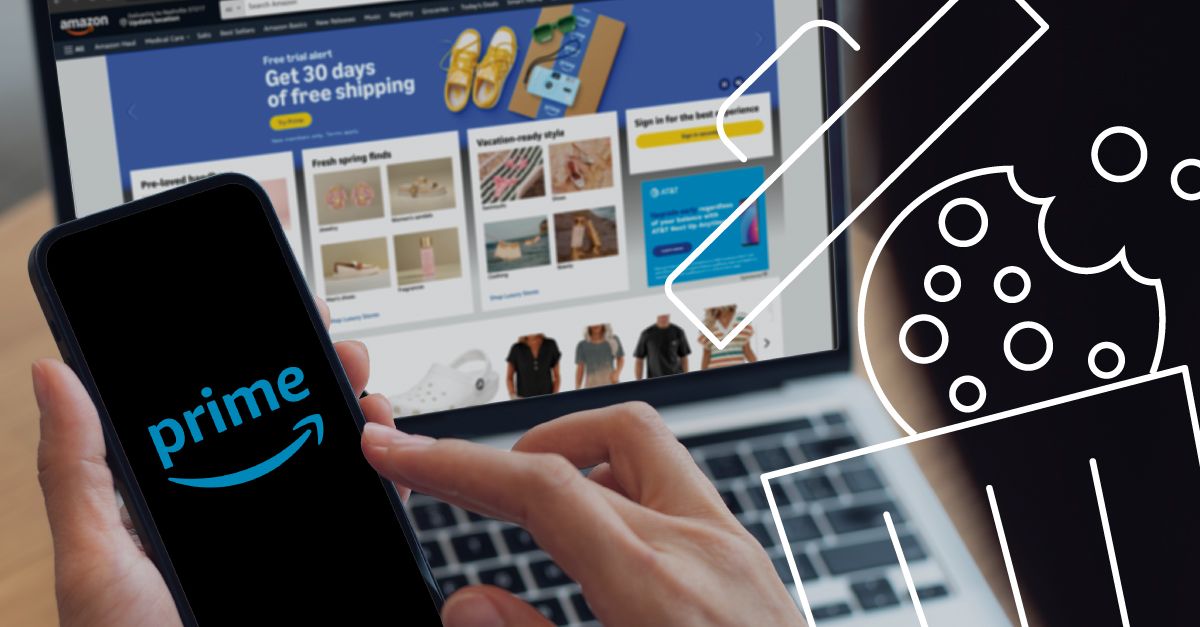
In a stunning turn of events, Google has reversed the decision to remove third-party cookies from the Chrome internet browser. The “death of the cookie” has been top-of-mind for many years for its potential impact on digital advertising; what does this mean for the future of digital advertising? Are cookies going to stay for good? Let’s take a look at the entire picture to understand what this breaking announcement means for your advertising.
What’s the Deal with Third-Party Cookies?
In a word: tracking. Third-party cookies present an easy way to see the full customer journey; the type of websites they visit, what content they interact with, and other behavioral metrics can be determined by noting the cookies that have been placed on their device.
As part of Google’s promise to “do more to protect privacy”, the tech giant declared third-party cookies would no longer be allowed with their new analytics program, GA4, and that they would not create alternative means for user-level tracking.


While theoretically encouraging advertisers to foster first-party relationships and other means of tracking, cookies nevertheless survived the launch of GA4 and continued to this day after multiple delays from Google. With their latest announcement, it seems like advertisers have them for good.
What Exactly is Happening?
In a short article, Anthony Chavez – VP of the Privacy Sandbox – discussed the issues of balancing data privacy with healthy advertising. As many have pointed out, Google’s Privacy Sandbox has recently been leaning too heavily on the side of privacy, offering no alternative to third-party cookies as a means of delivering ads to users.
This upsets the balance; advertisers would serve less ads, publishers would lose money, and consumers would receive less-relevant and more spammy ads.


In response, Chavez announced that third-party cookies would remain: “Instead of depreciating third-party cookies, we would introduce a new experience in Chrome that lets people make an informed choice that applies across their web browsing”.
We don’t know exactly what this “new experience” will look like; presumably, this means that users would have the choice to accept or reject cookies browser-wide, as opposed to individual sites as they do now.
No timeline was offered, and it’s unclear whether this will be an opt-out or opt-in system. Google Chrome already offers an option to disable all cookies – though it is somewhat buried within the settings – and it remains unknown how that option will differ from this “new experience”.
What Does It All Mean?
The Good Stuff
At the most basic level, this is good news for advertisers. We can assume that business will continue as usual in the realm of internet ads for the moment. Without the impending loss of cookies, advertisers who haven’t prepared for the change can breathe a little easier for now.


As for giving users the option to choose, there’s also little cause for worry. Recent data has demonstrated that users are generally okay with receiving personalized ads, and some studies suggest that as little as 1% of people opt out when given the choice. In the case of Apple – which launched a purely opt-in data tracking system – around 50% of users specifically chose to share their data for personalized ads.
The Bad(?) Stuff
In the short term, some may decry the change as a loss of investment; Google has been promising the removal of cookies for 4 years, and adtech has spent a pretty penny developing alternative methods for data tracking.
This out-of-left-field backtrack from Google will likely slow the adoption of these newer systems. Without an immediate need to innovate, advertisers are more likely to support legacy means of targeted advertising.


What Does it Mean for Genius Monkey Users?
The Genius Monkey platform has incorporated cookie-less tracking solutions for years. This announcement has no effect on the premium placement and unique view-through tracking system our users expect. The continuation of cookies will provide just one more source of data that users can benefit from, but otherwise there will be no difference in the day-to-day usage of the platform.
It’s Not Over Yet; What Does this Mean for the Industry?
Chavez made it clear that the Privacy Sandbox isn’t going away. The Sandbox has issues that extend beyond its cookie-less ambitions, which you can read about in a recent Genius Monkey article. Data privacy continues to be a top stated priority for Google, and there’s little doubt that more attempts to remove the cookie will occur in the future.
Advertising as a whole is already moving toward a future without cookies; they have no role in social media or mobile advertising. OTT/CTV – another cookie-less medium – is the fastest growing programmatic channel. Cookies are slowly becoming less important as each consumer has access to more devices than ever before; the future requires new means of measuring data across multiple channels at once.
This kind of omnichannel platform will become more vital with time and increasingly complex requirements from governments and advertisers alike. More important than placements, reach, frequency, and engagements is the ability to measure and optimize them all across a myriad devices, something third-party cookies can do little to help. Regardless of when cookies bite the dust for good, the need for measurement and ID-free advertising solutions are more important than ever.
Getting Prepared for the Future
It’s amazing how much power Google holds in the digital advertising space; the industry is always one announcement away from dramatic change. No-one can see the future, but there are steps you can take to prepare now. By leveraging the industry’s latest tools and an expert team on your side, you stand ready to pivot, adapt, and thrive.
World-class campaign management, complete customer journey reports, and reduced cost-per-conversion are just one inquiry away. Get in touch with the Genius Monkeys to see how we can evolve your marketing strategy to the next level!




